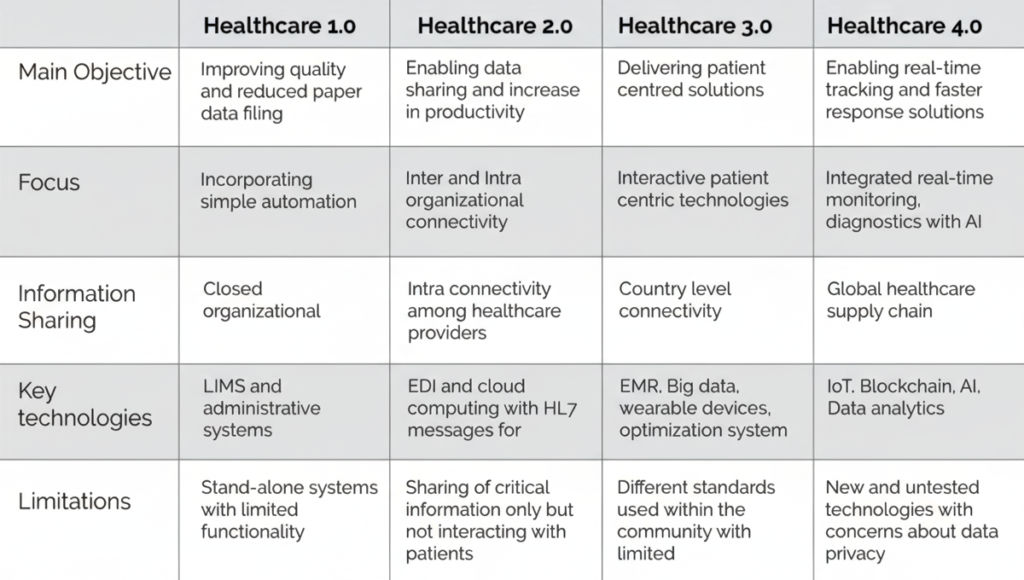
In order to overcome the aforementioned challenges, the healthcare industry has initiated the Industry 4.0 revolution, coined “Healthcare 4.0”. While the former primarily focuses on technology implementation only, the latter focuses on people and enables technology as a catalyst to provide better care. Newer healthcare design models and strategies are being formulated on the cutting edge of Information and Communication Technology (ICT) [1,2,5]. The article aims to provide insight into the healthcare transformation with regards to technological developments and the application of healthcare 4.0 for patients, professionals and Healthcare management.

The main core principle of Health 4.0 is connecting patients, personal medical devices, hospitals, clinics, pharmaceutical and medical suppliers, and other healthcare related elements to a smart health network and create a value chain. The key stakeholders in the healthcare system are patients, physicians, employers, insurance companies, pharmaceutical firms and government[7]. The key technologies of Healthcare 4.0 are beneficial in the following aspects:
The main objective of Healthcare 4.0 is to improve patients’ healthcare services quality and experiences. The enabling technologies can be integrated into the healthcare core to provide enriched care and services.
With the growing demand for Healthcare 4.0 technologies, there are new challenges to overcome. The demands for re-centralisation of the patient as the core of the healthcare system require a significant cultural change in the current system. Additionally with data collection and analysis, the ethical issues and concerns have to be effectively addressed with the right design models and by understanding patient privacy concerns sensitively and efficiently.
Healthcare 4.0 is crucial to creating smart, automated and efficient services to address the existing challenges faced by the healthcare industry. This, inturn, will greatly impact quality and efficiency while reducing costs incurred by healthcare providers. With data being available, healthcare 4.0 targets using this data and putting it into the right practices to deliver quality care and creating the ability to bring together healthcare organizations and care seekers for better outcomes. Additionally, it also allows applications to realize specific requirements for response times, quality of service, and well managed resources. Finally, it is of utmost importance to address the issues of inequities and ensure that healthcare 4.0 is designed to mitigate them and provide access to high quality, enhanced care for all people.